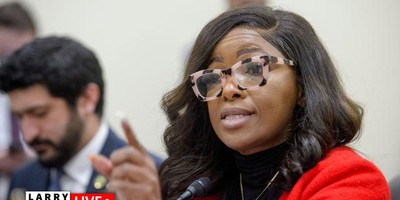In 2005, the Supreme Court said the federal government's power to "regulate commerce ... among the several states" extends to the tiniest speck of marijuana wherever it may be found, even in the home of a patient who grows it for her own medical use in compliance with state law.
"If Congress can regulate this under the Commerce Clause," Justice Clarence Thomas warned in his dissent, "then it can regulate virtually anything -- and the federal government is no longer one of limited and enumerated powers."
The Obama administration, which was in court this week defending the new federal requirement that every American obtain government-designed health insurance, seems determined to prove Thomas right. But despite seven decades of stretching by a Supreme Court eager to accommodate every congressional whim, the Amazing Elastic Commerce Clause is still not expansive enough to cover the unprecedented command that people purchase a product from a private company in exchange for the privilege of existing.
"Never before has the Commerce Clause ... been extended this far," noted U.S. District Judge Henry Hudson when he declined to dismiss the case he heard this week, in which Virginia is challenging the insurance mandate. Last week, allowing a similar lawsuit by Florida, U.S. District Judge Roger Vinson agreed that the Commerce Clause has "never been applied in such a manner before."
That's saying a lot, because the Commerce Clause has been used to justify some audacious assertions of federal power, under the theory that it covers not just interstate commerce but "activities that substantially affect interstate commerce."
In 1942, the Supreme Court said a farmer could be penalized for violating federal crop regulations by growing wheat for his own consumption because he thereby reduced demand in the interstate wheat market. The 2005 medical marijuana case extended this reasoning to a federally proscribed commodity grown by people who were not even farmers. In 1964, the Court held that businesses made themselves subject to a federal ban on racial discrimination by purchasing supplies that originated in other states.
Recommended
But as Vinson noted, all of these cases at least "involved activities in which the plaintiffs had chosen to engage." By contrast, the insurance mandate is "based solely on citizenship and on being alive."
U.S. District Judge George Caram Steeh, who this month dismissed the Michigan-based Thomas More Law Center's challenge to the insurance requirement, disagrees. Conceding that every case in which the Supreme Court has upheld a law under the Commerce Clause has involved "some sort of activity" and "an economic or commercial component," Steeh tried hard to find those elements in a law that punishes people for something that is neither economic nor an activity.
This was the best he could do: "Far from 'inactivity,' by choosing to forgo insurance plaintiffs are making an economic decision to try to pay for health care services later, out of pocket, rather than now through the purchase of insurance. ... These decisions, viewed in the aggregate, have clear and direct impacts on health care providers, taxpayers and the insured population who ultimately pay for the care provided to those who go without insurance."
Although Steeh claimed "the health care market is unlike other markets" because people "cannot opt out," his logic is easily adaptable. People who abstain from purchasing a car are making an economic decision to use other modes of transportation, and that choice has an impact on the U.S. automobile industry, which the federal government is committed to saving. People who do not eat vegetables are making an economic decision to consume other foods, and that choice affects the market for health care services as well as interstate commerce in broccoli. As Hudson observed on Monday, the possibilities are "boundless."
Worse, Steeh's emphasis on "cost-shifting" by people who make poor economic decisions suggests a federal government with the authority to override myriad heretofore private choices, including decisions about education, employment, housing, savings, investment and purchases of all kinds. Try opting out of that.

























Join the conversation as a VIP Member